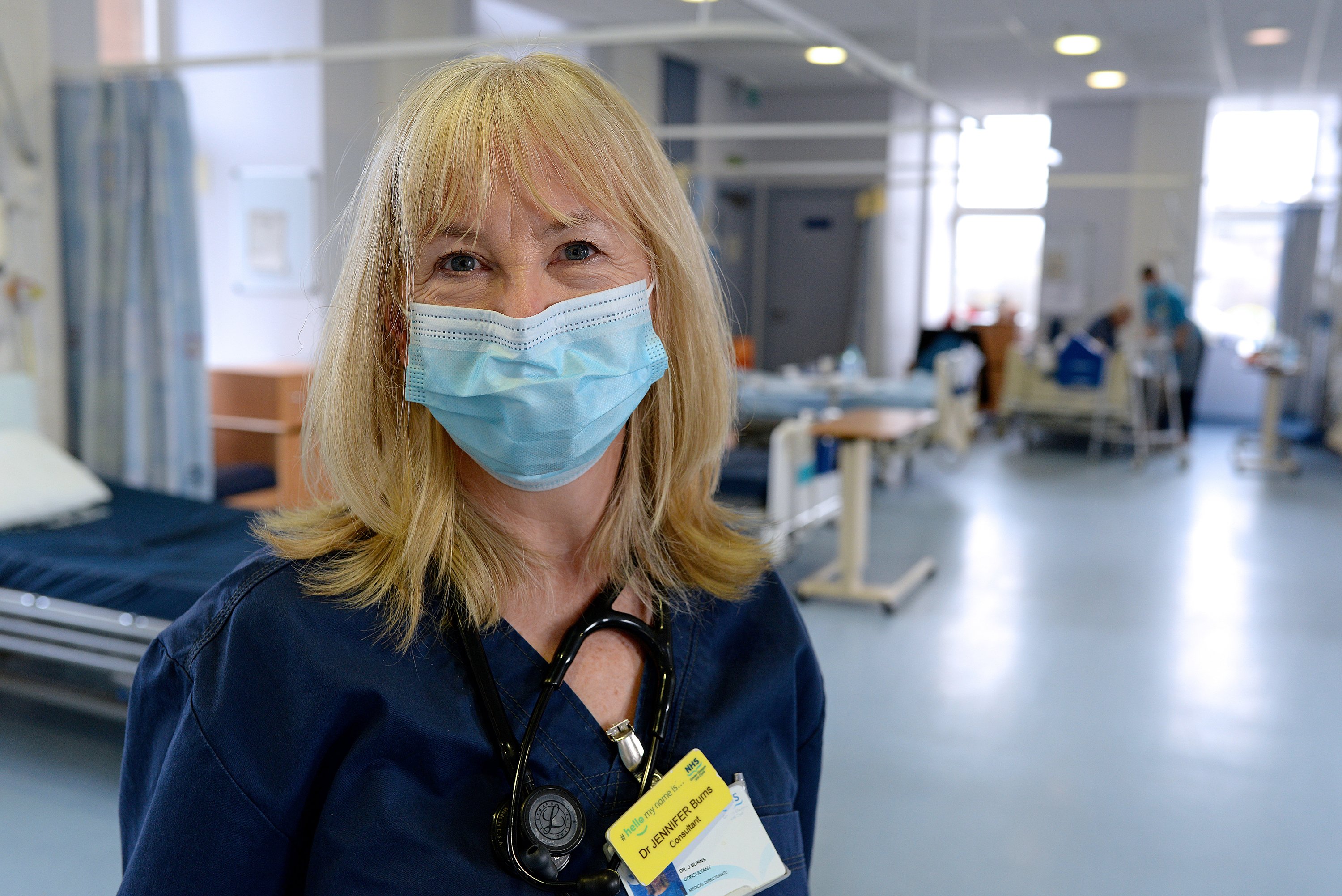Dr Jennifer Burns is BGS President and Consultant Physician in the Department of Medicine for the Elderly, Glasgow Royal Infirmary. She Tweets at @Burns61Jenny
As we come up to a year since COVID-19 was officially declared a pandemic by the World Health Organization[1] and ‘normal’ life as we knew it was halted, many are reflecting on what has happened over the past year. No one at that stage could possibly have predicted how long this situation would go on for or how bad it would become.
Shortly after the declaration of the pandemic, the Government’s Chief Scientific Advisor told a committee of MPs that keeping deaths below 20,000 would be a ‘good result.’[2] A year on and the number of deaths in the UK with COVID-19 on the death certificate is six times that number.
While the roll-out of the vaccine brings us hope that the end of the pandemic may be in sight, for many, it will also give us the space to finally come to terms with what has happened. For countless families up and down the country, this may be the opportunity to grieve those they have lost and, in particular, to grieve together – something they were probably unable to do at the time. For Governments, and those who hold them to account, it will be time to reflect on how the pandemic was managed and whether there are lessons to be learnt. And for healthcare professionals who have worked through the pandemic, it will be important for us to take the time to reflect on what we have experienced over the past year and to look after our own wellbeing.
There will be pressure in the coming months to catch up on waiting lists and ensure that patients who haven’t been able to access services during the pandemic have the treatment that they need. For those of us who care for older people, we may find that there is even more pressure as the number of older people who have deconditioned during lockdown becomes apparent.
In addition, COVID disproportionately affected older people and we can realistically expect to see a large number of older people coming forward whose conditions have worsened, whose frailty has increased, and who need support to deal with the long-term effects of COVID. It will be important to ensure that these patients get the care they need but this must be balanced with a plan to enable the workforce to recover.
Various organisations including the Royal College of Physicians, NHS Providers and the King’s Fund have called for NHS staff to be given time off to recover from the pandemic. I suggest that for those working with older people, this need may be even greater, and call for rapid recovery of leave allowances and normal working patterns.
When talking about the pressures on health and care staff, the word ‘resilience’ comes up a lot and there is no doubt that healthcare professionals have shown themselves to be resilient over the past year. However, resilience is for managing a crisis. We cannot expect people to continue to work under the pressure they have been under and remain resilient.
The workforce is exhausted – physically, emotionally and mentally – and its members need time to recover, to come to terms with what they have experienced and to then return refreshed. Working in health and social care is a vocation – we know that our members are dedicated, that they love their jobs and that they love caring for their patients. They must be supported to continue to do so.
In the meantime, I urge you to be kind to yourselves and take the opportunity of pressures hopefully easing in your area to spend some time with your families and reflect. You have no doubt lost some of your work/life balance over the last year and I encourage you to consider how you might be able to bring a better balance back to your life.
At BGS, we are taking steps to support our membership including wellbeing sessions at the upcoming Spring Meeting, providing resources on our website, opportunities for peer support and reflections on the pandemic in our Newsletter. We are aware that these are small contributions to what seems like a momentous challenge but we are hopeful that we will be able to help some of you to come to terms with what you have experienced. If there are other ways we can be supporting you, please do get in touch.
